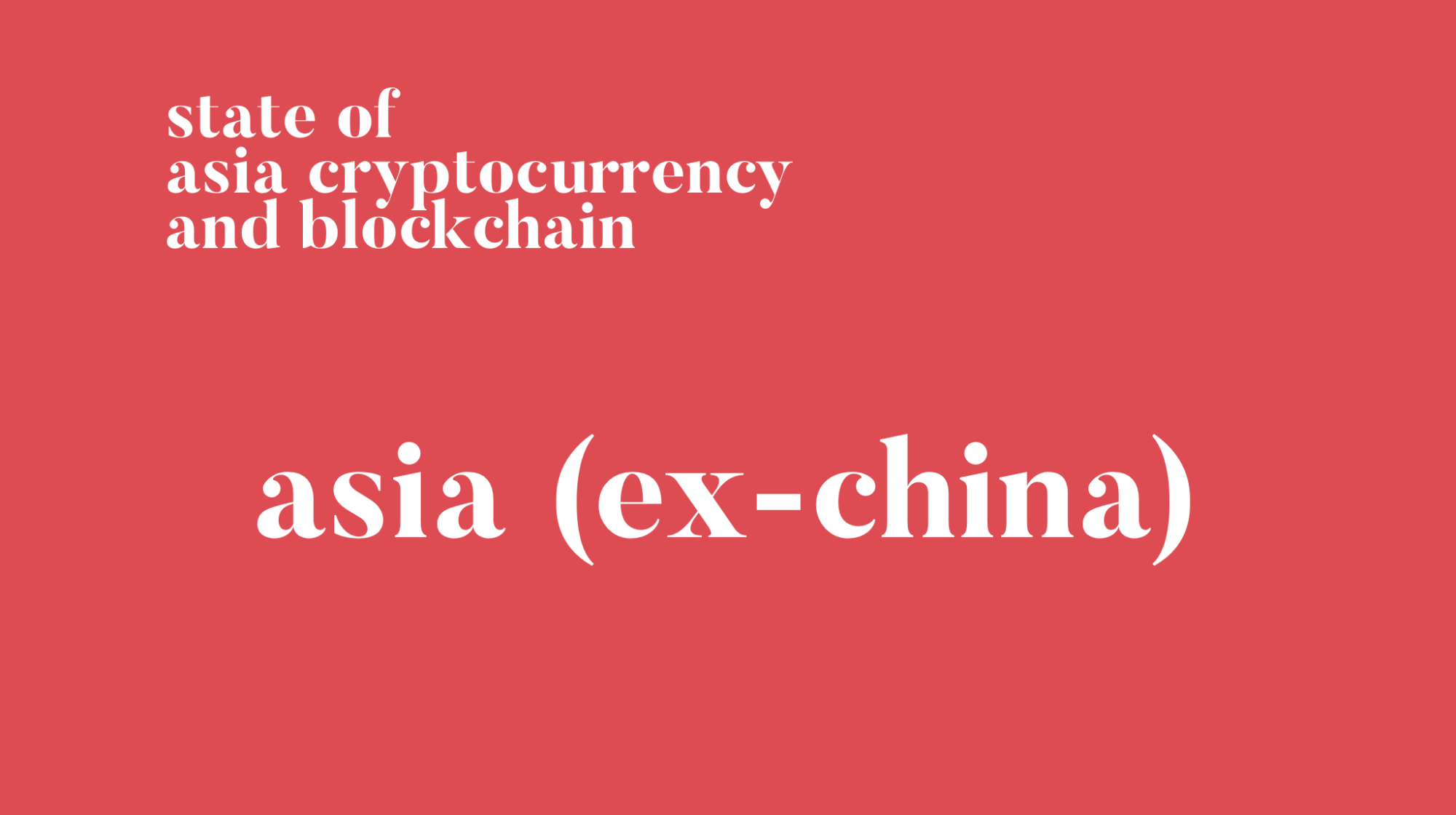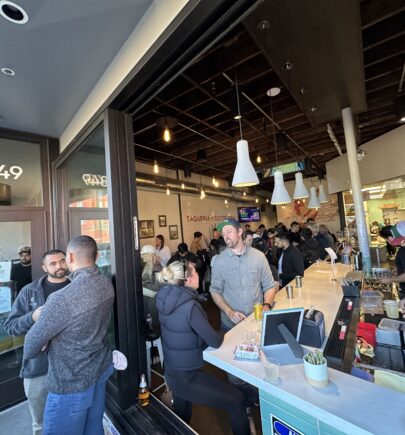State of Japan and Korea – February Edition

This free preview of Global Coin Research is offered to our loyal readers as a representation of the unique information and insights our members receive weekly. If you’d like to receive all subscription content on our site and via our weekly newsletter, join here!?
Last week, we shared our thoughts on the most recent important happenings in China. This past weekend, we highlighted the most important developments in Japan and Korea.
The Quick Take
Under increasing regulatory scrutiny, Japanese exchanges try to grow up as they get rolled up by financial and internet service companies. One of the most popular coins in Japan, NEM, plans to lay off 150 people after realizing the foundationt only has 1month of
For Korea, I share what I talked to Laura Shin about when I was a guest on her podcast Unconfirmed. The educated and financially frustrated young generation in Korea, excited by a glimpse of hope delivered by Ethereum and Ripple early on, essentially drove the crazy crypto Korean market that we saw in 2017 and 2018.
Japan
What’s happening:
Japan’s financial regulator has released Q4 2018 data on the number of inquiries about cryptocurrencies, showing further declines. Since the beginning of 2018, the number of inquiries has declined by almost five times from the 3,559 requests registered by the FSA during the first three months of 2018. And according to jpbitcoin.com, bitcoin trading at 10 local exchanges stood at 731 billion yen in December, down nearly 90% from a year earlier.
Japanese exchanges are also undergoing internal improvements following a wave of acquisitions by established financial and internet service companies. Beginning from April last year to the end of 2018, there has been a wave of acquisitions by established financial and internet service companies: e-commerce juggernaut Rakuten purchased the exchange Everybody’s Bitcoin in September, and Yahoo Japan bought a minority stake in BitARG in April 2018. Japanese financial services conglomerate Monex Group purchased the exchange Coincheck in April as well. Coincheck was famously known for its $530mn hacked in January 2018.
Monex Group recently reported a 1.1 billion yen ($10 million) loss for its
Separately, blockchain conglomerates have continued to explore blockchain and a number
MUFG, Japan’s largest financial group and the world’s fifth
SBI, one of Japan’s financial services company group based in Tokyo, outlines the implementation of technologies by Ripple and blockchain consortium R3 as a major part of its strategy to enable a global standard for financial operations such as international payments and trade finance.
As a part of the strategy to enable a
SBI also invested $15m in Swiss crypto wallet BRD.
Japanese IT giant GMO Internet has confirmed that it plans to launch its yen-backed stablecoin GYEN this year overseas.
Japanese blockchain development company Crypto Garage announced it had gained regulatory permission to trial its settlement system using Blockstream’s Liquid Sidechain, using Liquid as part of an arrangement allowing exchanges to issue yen-pegged
What this means:
For Japanese exchanges, many of the top ones are now being rolled into larger corporations, and professional managers are being introduced to manage these exchanges. For example, the former founders of Bitflyer and Coincheck all have been replaced by industry veterans to run the exchanges.
And some Japanese crypto community members has been lamenting. They argue that the growing entrance of professional managers in Japan’s cryptocurrency scene has come at the expense of entrepreneurial drive. https://thelyrically.com/ This may be another setback for a country that already suffers from a lack of successful startups. One of the industry executives said: “The political battle for influence over the industry has definitely overshadowed the enthusiasm for innovation, Conversations happening in the U.S. and China are much more exciting than in Japan.”
It’s fascinating to see corporates trying to spend money and trying to revive these businesses. While it’s a good thing that an influx of large companies will help raise security standards and restore investor trust, these corporates will have to continue to endure losses.
For example, after its last hack, its parent company Monex spent millions of dollars beefing up its team of engineers, allowing it to once again obtain official approval to operate as an exchange. Now Monex and the likes will have to sustain the entire exchange business, rebuild the trust in the face of a prolonged decline market without much innovation, under an ever-increasing regulatory oversight.
And this
NEM’s failing foundation and a lesson for everyone else
One of the popular coins in Japan, NEM, saw itself in some pretty serious financial trouble. In January, NEM foundation announced that they
Korea
What’s happening:
Lately, we’re seeing ongoing tightened security amongst exchanges. South Korea Government approves only seven out of 21 cryptocurrency exchanges’ security policy, with the remaining 14 failing to meet the criteria for suitable security procedure. Meanwhile, s
Nevertheless, there are still ongoing plans to increase adoption and sustain blockchain interest. For example, the Korean government Seoul Metropolitan Government has announced plans to invest more than $1 billion in blockchain and
The team consists of 100 employees between the ages of 21 and 77, including developers, association executives, project makers, corporate representatives as well as students. Specifically, the working group intends to address systems of integrated management, digital document verification
In a bid to serve the institutional clients in the crypto market, South Korean cryptocurrency exchange Bithumb has launched an over-the-counter (OTC) trading desk, branded as “Ortus”.
What this means:
This past week, I shared my observation of the Korea crypto community with Laura Shin as a guest on her Unconfirmed podcast. Here I’m quickly summarizing what I said on the podcast about why I think folks there are so interested in crypto as such a strong speculative tool:
South Korea is one of the most educated countries in the
Approximately 50% of the population lives in Seoul, the capital city of Korea. The average salary for a university undergrad coming out of a top school is around $50k, and for a senior exec like a Senior Vice President person in Samsung is around $200k.
And meanwhile, the cost of living in Seoul is very expensive. It is only about 10-20% lower than that of New York City, so it’s not that much cheaper. As a result, its often hard to save for young people, which leads to their first
Secondly, real estate prices in Seoul is comparable to that of New York City, as a result of lack of savings and the ridiculous real estate prices, young folks have to unfortunately also give up the dream of owning a house. My contacts told me that in Korea, over 85% of people in Seoul don’t own their homes. So there is the 2nd
And in Korea, there is a marriage tradition in which it is expected that the male side offers a house to the bride and her family when he gets married, so if you can’t afford a house, how do you get married? Subsequently, this leads us to the 3rd
Under these conditions of high cost of living and real estate prices, it is often frustrating for young Koreans who are educated but are unable to fulfill themselves financially. The corporate world in Korea is also very hierarchical and its difficult for young folks
Another factor that complemented this societal stress is the unsophisticated tech ecosystem, since joining rising tech companies is a promising and alternative career option for young ambitious people in the US. Nevertheless, the tech ecosystem is relatively immature in Korea. The largest limited partner for venture capital firms in Korea is the Korean government. The government wants to foster innovation by deploying capital through venture investors. They provide money for venture capitalists to deploy, but they are not traditional limited partners like that of the US, who usually choose to take on the risk of venture capital firms in exchange for large breakout returns. Subsequently, the incentives are different for venture investors who take the government’s money because they don’t have the same pressure to deliver like a US venture capitalist.
And because many Korean venture capital firms take government money, they would often all collaborate on investing deals together. Everyone gets to participate in a deal and there is no real competition among the VCs. Unfortunately, all these poor incentive alignment ends up with a subpar investor pool and a subpar startups pool and very few startups become successful. Many young people become discouraged from seeing this as a result, and they would instead turn to cryptocurrency speculation as a way to strike rich quickly.
When Ethereum and Ripple launched and saw their prices going up, many individuals who participated in Korea were able to make money. Per my conversation in my podcast with Alex Shin, Korea previously made up of up to 77% of retail transactions per day for Ripple. And I think the crypto ecosystem really started building from there. For example, Simon Kim, the founder of Hashed, one of the earliest and largest crypto funds in Korea, started Hashed because he bought Ethereum very early on at around $10 dollars and rode the wave up. The fund continues to have strong conviction in crypto and they’ve even held onto their tokens now despite the market crash.
Many of the aforementioned circumstances fostered the large speculation market in Korea. The educated and financially frustrated young generation in Korea, excited by a glimpse of hope delivered by Ethereum and Ripple early on, essentially drove the crazy crypto Korean market that we saw in 2017 and 2018.
Now that the trading market has become quiet, we still see the ongoing push for blockchain technology support in Korea. Lo and behold, government funds are being poured into blockchain and
Nevertheless, some insiders that I’ve spoken to are quite skeptical. From my conversation with the founder of Korea Bitcoin Association and also a founder of Korbit, Jinhwa Kim, he says that this Korean government regime is very conservative and they have become wary of cryptocurrency. As long as the same leadership remains, for the next 3-4 years, the country’s views on cryptocurrency will likely not change. And according to Jinhwa, many local jurisdictions or governors would parade around their support for blockchain and cryptocurrency primarily for marketing reason. Very few plans will unfortunately realize.












